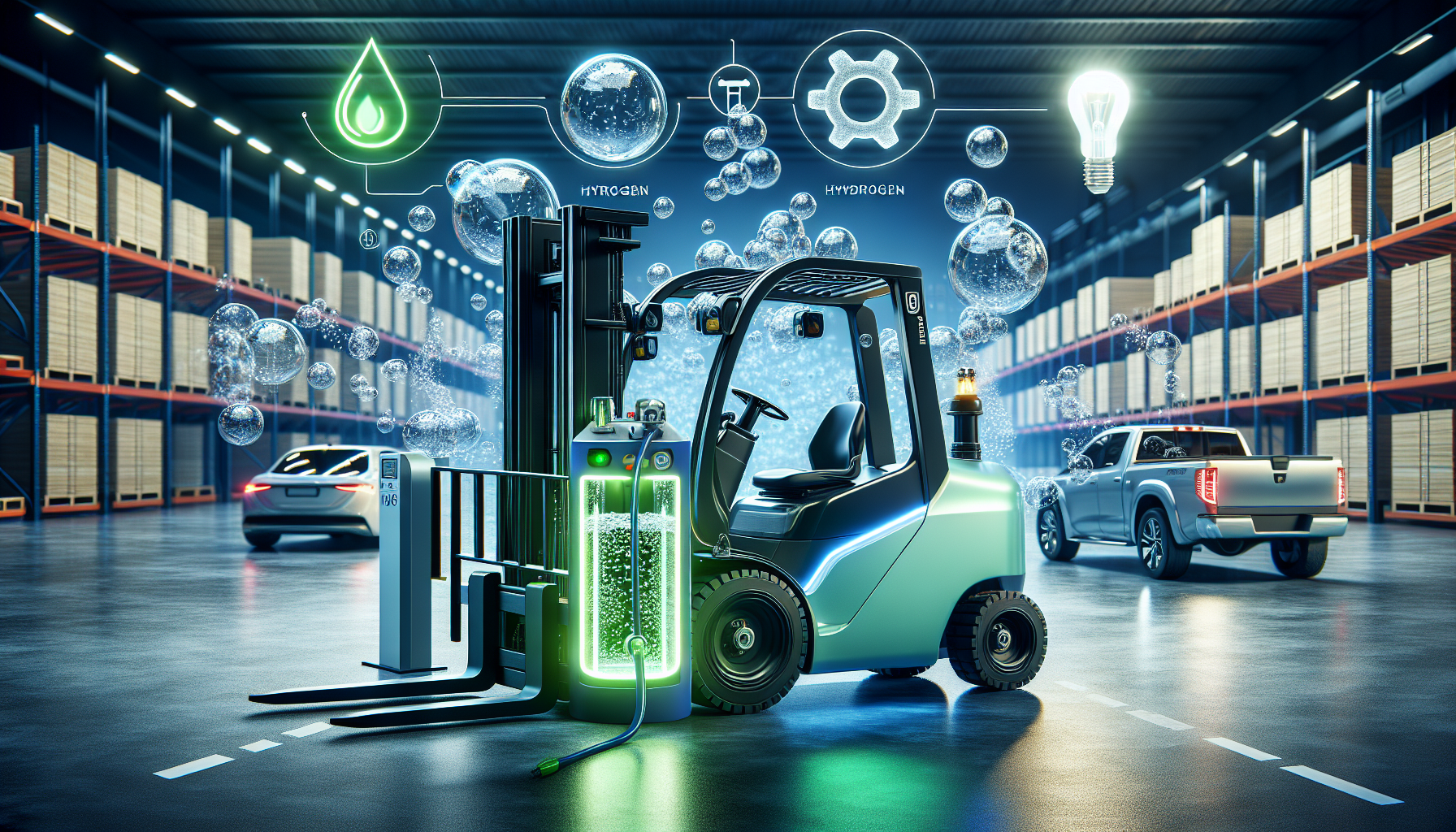Hydrogen-powered forklifts are rapidly gaining popularity as a clean and efficient alternative to traditional forklifts. With advancements in technology and a growing emphasis on sustainability, these forklifts are poised to play a significant role in the future of warehouse operations. In this article, we will delve into the benefits and challenges of hydrogen-powered forklifts, and explore why they are considered the next big thing in the material handling industry.
The Benefits of Hydrogen-Powered Forklifts
There are several key advantages to using hydrogen-powered forklifts in warehouse operations:
- Environmentally Friendly: Hydrogen is a clean and renewable energy source, producing zero harmful emissions when used as a fuel. This not only contributes to a greener environment but also helps companies meet their sustainability goals and comply with stringent environmental regulations.
- Energy Efficient: Hydrogen fuel cells offer higher energy efficiency compared to traditional lead-acid batteries commonly used in forklifts. They provide consistent power throughout the entire duration of operation without experiencing performance degradation as batteries do over time. This results in increased productivity and reduced downtime.
- Quick Refueling: One of the major advantages of hydrogen-powered forklifts is their quick refueling time. Unlike electric forklifts that require several hours of charging, hydrogen-powered forklifts can be refueled in just a few minutes, significantly reducing downtime and improving operational efficiency.
- Longer Run Time: Hydrogen fuel cells offer extended run times compared to traditional batteries, allowing for uninterrupted operation throughout the working day. This is especially advantageous for companies with high-demand warehouse operations.
- Reduced Space Requirements: Hydrogen fuel cells take up less space compared to battery charging stations, freeing up valuable warehouse space that can be utilized for other purposes. This is particularly beneficial for warehouses with limited square footage.
Given these benefits, it is no surprise that hydrogen-powered forklifts are becoming the preferred choice for many warehouse operators. However, like any emerging technology, there are challenges that need to be addressed to ensure widespread adoption.
Challenges and Considerations
While hydrogen-powered forklifts offer numerous advantages, there are a few challenges that need to be considered:
- Infrastructure Requirements: Hydrogen refueling infrastructure is still relatively limited compared to traditional fueling options such as gasoline or diesel. The availability of hydrogen refueling stations is an important factor to consider when transitioning to hydrogen-powered forklifts. However, as the popularity of these forklifts continues to grow, the infrastructure is expected to expand rapidly.
- Costs: The initial capital investment for hydrogen-powered forklifts and refueling infrastructure can be higher than traditional forklifts. However, it’s important to consider the total cost of ownership over the lifespan of the equipment. Factors such as reduced energy costs, increased productivity, and longer run times can offset the initial investment over time.
- Maintenance and Training: Hydrogen fuel cells require regular maintenance to ensure optimal performance and longevity. Additionally, forklift operators and maintenance personnel may need specialized training to handle hydrogen fuel cells safely and efficiently.
Despite these challenges, the future of hydrogen-powered forklifts looks promising. As companies look for ways to reduce their environmental footprint and increase operational efficiency, hydrogen-powered forklifts provide an innovative solution.
At HCO Innovations, we specialize in warehouse optimization solutions, including the implementation of hydrogen-powered forklift fleets. Our advanced fleet power management systems ensure efficient and cost-effective operation of hydrogen-powered forklifts, maximizing productivity while minimizing operational costs.
If you are considering transitioning to hydrogen-powered forklifts or want to optimize your existing fleet, HCO Innovations can help. Contact us today to learn more about our warehouse optimization solutions and how we can assist you in harnessing the power of hydrogen for a sustainable and efficient warehouse operation.

